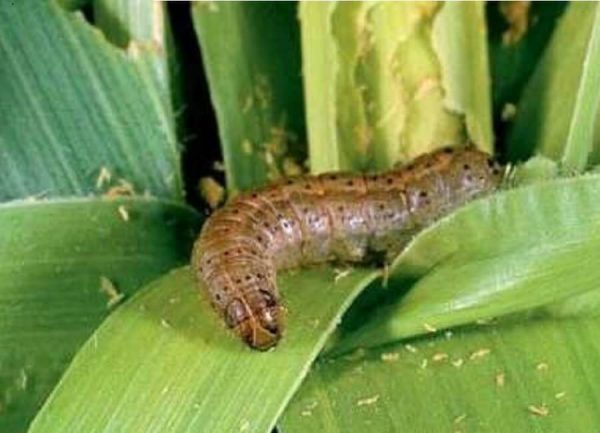Agriculture experts have urged the Zimbabwe Government to invest in production of cheaper chemicals for fall armyworm control to reduce costs of production for farmers.
Nearly 150 000 hectares countrywide has been reported t0 have been infested by the fall armyworm posing a serious threat to the country’s major staple food crop.
Chemical control is very expensive and out of reach by most farmers and experts estimate that the cost are about $100 per hectare against a yield of 0,7 tonnes per hectare.
This brings the cost to the farmer to about $273 per hectare, something most experts fear will make the farming of the crop enviable.
According to Philipa Rwambiwa, the Manicaland provincial agricultural extension officer, poor farmers were struggling to buy much needed chemicals.
“I think Government should also look at the option of investing in production of cheaper chemicals for fall armyworm control to reduce costs of production for farmers,” Rwambiwa said.
The current regime of chemicals were effective but expensive for most resource poor farmers, Rwambiwa said as reported by local media.
“We are saying the chemicals farmers are using to fight the pest are very effective if applied properly and at the correct time but it is the cost of acquiring them that is making it difficult for farmers to win the battle against fall armyworm.
“Chemicals like Ecoterex, Super dash, Ampligo and Belt which most farmers are using are very effective but not many of them can afford them so it will be better if they can get cheaper alternatives,”.
Fall armyworm was first seen in Zimbabwe in September 2016, and became more prevalent in January and February when it was spotted across the country, a joint report by the government and U.N. agencies indicated.
Some farmers “resorted to handpicking and squashing the worms in an attempt to control them”, or used pesticides.
But 60 percent of farms affected by the pests did not take any measures to control them, resulting in extensive damage to crops, the 2017 Rural Livelihoods Assessment Report said.








